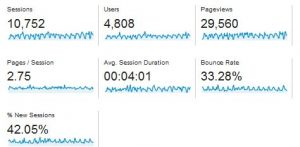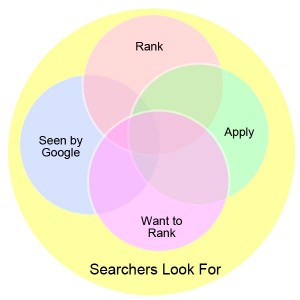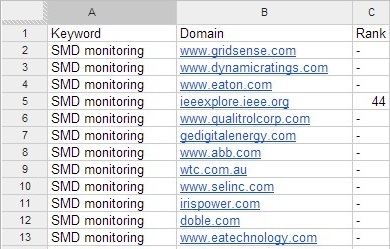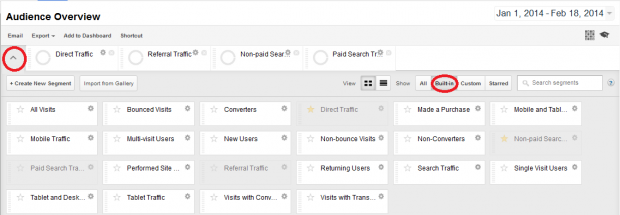The metrics reported by Google Analytics provide valuable information about how users interact with your website. This guide can help you interpret the data and apply it to your marketing and SEO campaigns.
Sessions
Google defines a session as “the period of time a user is actively engaged” on a site. Sessions typically expire after 30 minutes, but the amount of time can be adjusted as desired. High numbers of new sessions means more new traffic. Low numbers indicate repeat visitors and a potentially higher level of engagement.
Visits and Page Views
Visits specify the number of people who come to your site. Every visit is counted, but only visits from new users are listed as unique. The “pageviews” metric shows how many visits a particular page on your site has received. Taken together, viewing data helps determine the popularity of your site. Continue reading




 With last month’s release of Google’s new ranking algorithm that lowers non-mobile-friendly websites in a mobile search, people have been running to get their site mobile-friendly. But for those out there who have yet to make the switch, the options for turning a website “mobile-friendly” can be confusing and frustrating, especially for those who aren’t familiar with web design terms.
With last month’s release of Google’s new ranking algorithm that lowers non-mobile-friendly websites in a mobile search, people have been running to get their site mobile-friendly. But for those out there who have yet to make the switch, the options for turning a website “mobile-friendly” can be confusing and frustrating, especially for those who aren’t familiar with web design terms. 


 Recently after posting an expert level technical blog article, a client of Orion Group was approached by an industry authority website seeking to develop their own article based upon content featured in the original blog article. Our client recognized the invitation as being an opportunity for getting additional online exposure and gladly agreed.
Recently after posting an expert level technical blog article, a client of Orion Group was approached by an industry authority website seeking to develop their own article based upon content featured in the original blog article. Our client recognized the invitation as being an opportunity for getting additional online exposure and gladly agreed. 